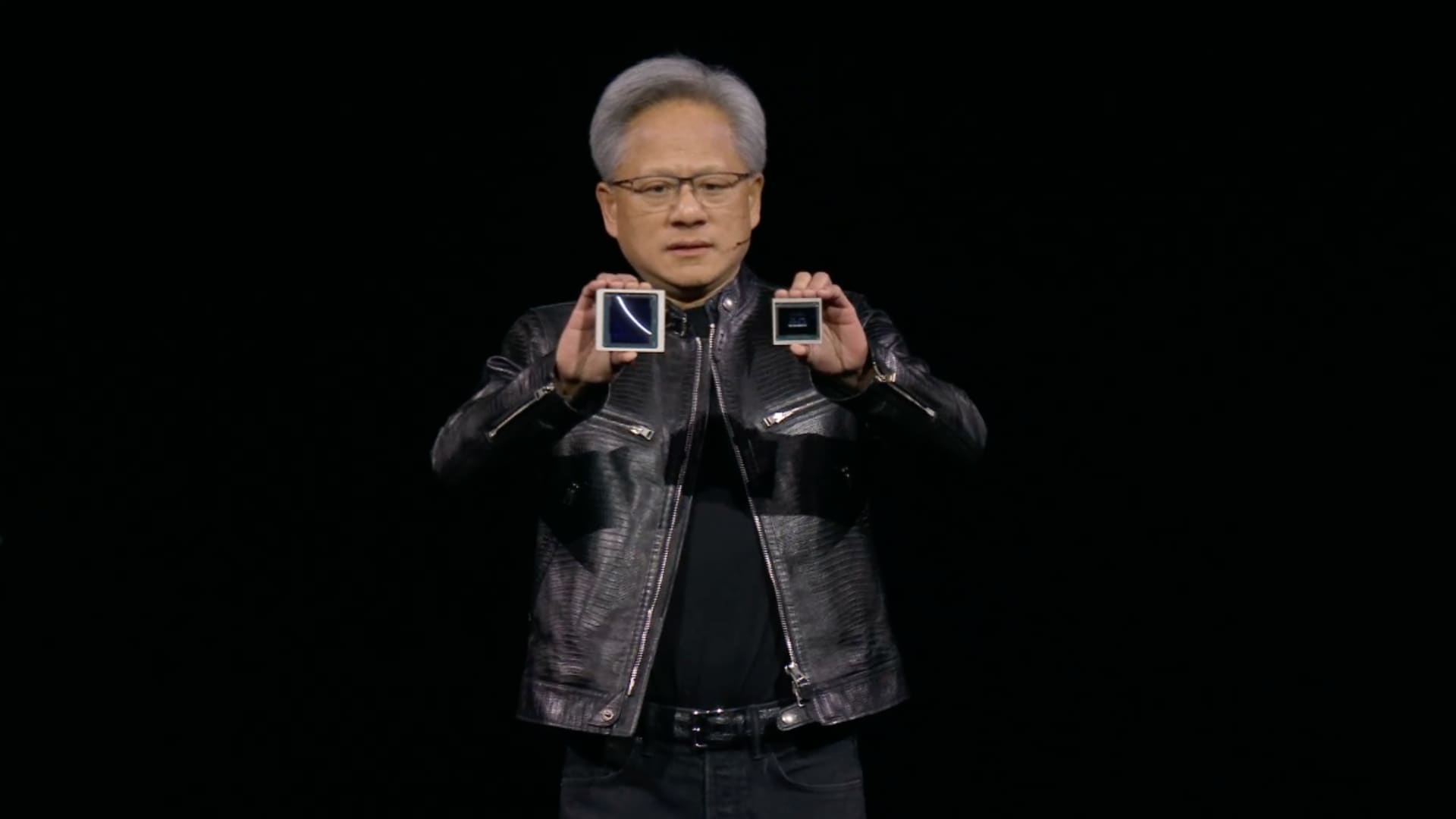New U.S. rule could end in ‘near-total cutoff’ of chips to Huawei, dealing ‘lethal blow’, analyst says

A Huawei logo is displayed at a retail store in Beijing, China on May 27, 2019.
Fred Dufour | AFP | Getty Images
Huawei could face a “near-total” cut-off from key semiconductors after the U.S. tightened restrictions on the Chinese firm’s ability to obtain critical components, according to one group of analysts.
The latest rule could be a huge blow for the technology giant, which was already facing limited options to procure the chips it needs.
If Huawei isn’t able to get access to the components it needs, billions of dollars of revenue is on the line from across its entire business.
“The U.S. moves represent a significant tightening of restrictions over Huawei’s ability to procure semiconductors. That puts into significant jeopardy its ability to continue manufacturing smartphones and base stations, which are its core products,” Dan Wang, technology analyst at Gavekal Dragonomics, a research firm, told CNBC.
Huawei was not available for comment when contacted by CNBC.
The details
In May, Washington amended the foreign-produced direct product rule (FDPR) requiring foreign manufacturers using American chipmaking equipment to get a license before they’re able to sell semiconductors to Huawei.
On Monday, the Department of Commerce took further action. It added 38 Huawei affiliates onto a blacklist called the Entity List. American companies are restricted from doing business with companies on the Entity List.
And Washington further amended the FDPR to include instances where U.S. software or technology is the basis for a foreign-produced item that will be used in the “production” or “development” in any part, equipment or component produced, purchased or ordered by any Huawei entity on the blacklist.
The amended rule will apply when any Huawei entity on the blacklist acts as a “purchaser, intermediate consignee, ultimate consignee, or end-user.”
These designations are important as they essentially increase the scope of what comes under U.S. sanctions.
‘Lethal blow’
Huawei designs its own line of Kirin chips which go into its smartphones. It also designs a line of chips called Ascend which go into servers for its data centers that its fast-growing cloud computing division relies on.
But the actual manufacturing is done by Taiwan’s TSMC, which has already said that it will no longer ship chips to Huawei from mid-September.
After the initial amendment to the FDPR in May, Huawei was already facing very limited options in procuring chips.
The most viable, according to experts, was buying from Taiwanese firm MediaTek, which produces so-called “off the shelf” chips for smartphones that Huawei could buy. Obtaining semiconductors from Chinese firm Unisoc was also an option. As was potentially moving production to SMIC, China’s largest contract chipmaker.
However, all options had serious issues. For example, SMIC uses U.S. equipment to make chips while it is also significantly behind TSMC in terms of technology.
But the latest move by the Department of Commerce is one of the toughest moves against Huawei yet and threatens to narrow the company’s options even further.
“The move is the latest and potentially most serious effort by the U.S. government to choke off the company’s ability to obtain advanced semiconductors for all of its business lines,” Eurasia Group said in a note on Monday.
“A worst-case scenario, which appears increasingly likely, could amount to a near-total cutoff of semiconductors to Huawei, dealing a lethal blow to China’s most important global technology company.”
Business could ‘unravel’
The effect on Huawei could be severe, targeting some of its most important business. Last year, Huawei’s consumer division, which includes smartphones and laptops, brought in sales of 467.3 billion yuan or $66.93 billion in 2019 and accounted for over 54% of total revenue.
Washington’s latest rule change could directly hit that.
Huawei might have enough chips to ride out the rest of the year but 2021 could be difficult.
“The new US ruling makes it even harder for Huawei to source adequate smartphone chips for 2021,” Neil Mawston, executive director of wireless device strategies at Strategy Analytics, told CNBC by email.
Eurasia Group said that Huawei has been stockpiling chips which “might allow it to remain in business, but these are not likely to last more than a year or so.” The analysts note that there is also a risk of customers ditching Huawei technology.
“Huawei’s customer base may also have determined they need to move to a different supplier, meaning the company’s business could quickly unravel,” Eurasia Group noted.
